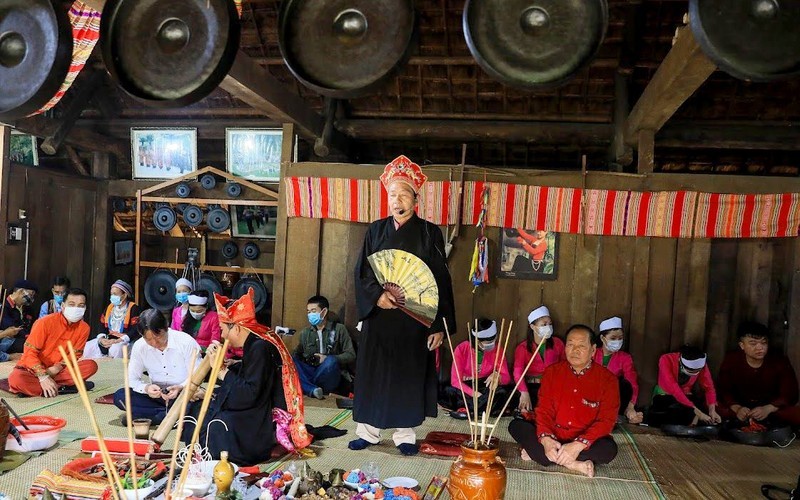Deputy Prime Minister Tran Hong Ha has agreed on the Ministry of Culture, Sports and Tourism (MOCST)’s proposal on the submission of dossiers on Mo Muong folk rites and the art of ‘Cheo’ folk singing to seek UNESCO recognition.

‘Mo’ is a unique intangible cultural heritage of the Muong ethnic community.
Accordingly, Mo Muong, which is now practised in seven cities and provinces across the country, including Hoa Binh, Thanh Hoa, Ninh Binh, Phu Tho, Son La, Hanoi and Dak Lak, targets UNESCO status as an intangible cultural heritage in need of urgent safeguarding.
‘Mo’ is a unique intangible cultural heritage of the Muong ethnic community. It is a type of folk rite practised at funerals or rituals of the Muong people. ‘Mo Muong’ reflects the ancient Muong people’s perception of the world as well as their social life.
Meanwhile, the art of ‘Cheo’ (Vietnamese traditional opera) in the provinces of Thai Binh, Ninh Binh, Ha Nam, Nam Dinh, Hai Duong, Hung Yen, Bac Ninh, Vinh Phuc, Phu Tho, Quang Ninh, and Bac Giang and the cities of Thai Nguyen, Ha Noi, and Hai Phong seeks the inclusion in the UNESCO Representative List of the Intangible Cultural Heritage of Humanity.
‘Cheo’ is a form of Vietnamese traditional stage art which originated in the 10th century from folk music and dance. The art form has played a role in the spiritual and cultural lives of people living in the Red River Delta region.